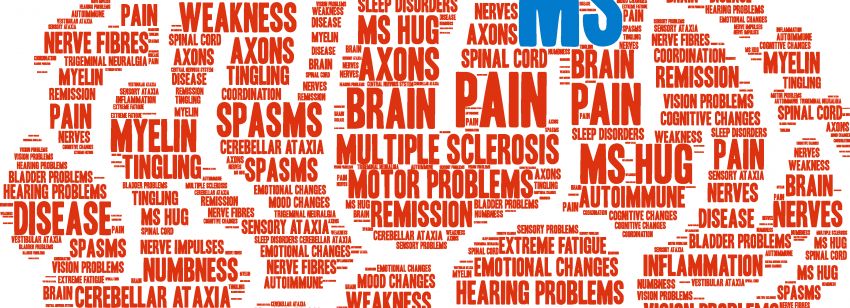Multiple Sclerosis - The Disease of 1000 Faces
Rare Disease Day 2021 is coming up – we, SKC, want to do our part to generate more awareness for these diseases. This time for multiple sclerosis.
"It was a long and difficult road. It took 5 years to find out what I really have [...] I just wanted certainty and that's what I got" (Janine, late 30s)
These two people share one thing in common: they were diagnosed with multiple sclerosis. The third part of the blog series on rare diseases on the occasion of Rare Disease Day 2021 is about multiple sclerosis and the symptom-laden and often long road to diagnosis.
Janine's path also stretched over 5 years. She experienced tingling in her arm, speech disorders, narrowing of the visual field or bright flashes when seeing, and facial pain. After prescribing beta blockers, she thought her problems were solved, however, they did not work and her symptoms got worse. It wasn't until her neurologist's vacation replacement sent Janine for an MRI, after which she was diagnosed with multiple sclerosis.
A completely different path is described by another patient, Caro. After the birth of her daughter, the first signs of the disease appeared. Numbness and sensory disturbances, permanent fatigue and exhaustion, but at the same time no one who took the symptoms seriously. After the birth of her son and her husband's tumor disease, she had to ignore the symptoms until finally a doctor diagnosed her with multiple sclerosis (1).
These examples show that multiple sclerosis can have different faces and is usually diagnosed only after a long period of treatment (more background information on this disease can be found on the bpi site). This is due to the fact that signs of MS can also have other diseases as their cause, which makes a so-called diagnosis of exclusion difficult (2). Even children can be affected. They may have so-called pediatric multiple sclerosis, a rare variant of this disease characterized by the onset of multiple sclerosis before the age of 18. Also a rare form is Marburg multiple sclerosis, which manifests as a rapidly progressing, aggressive form that can lead to severe disability or even death within weeks to months. Those who survive this form of MS go on to exhibit relapsing MS features. More information about the rare forms of this disease can be found on Orpha.net.
In spite of all the sometimes severe courses of the disease and symptoms, many patients muster up strength and give courage to others affected. Janine is now retired but works at the regional association of the German Multiple Sclerosis Society in Berlin. Despite severe fatigue, tremor in the legs, spasticity in the bladder and cognitive disorders, a reduced perception of temperatures and touch in the left half of the body and other complaints, she does not hang her head. Humor and positive thoughts are her daily companions in dealing with the disease. Caro wants to "look forward and not look back." She changed her life step by step, found new hobbies and activities and hopes that in the next few years the cause of MS will be found and that drugs will be developed and brought to market that have fewer side effects (1).
Drugs against multiple sclerosis are already on the market, even the rare forms of this disease can now be treated to some extent, see an article by bpi (3). Patients with one of these rare forms can therefore continue to hope for research and the associated new drugs in the future.
The third disease shows again that despite a therapy option the patients must not be forgotten. Their life courses are still far from being able to be described as normal, the corresponding Burden of Disease is high and requires further adaptation of the care reality.
For more information, click here:
(1) True stories of patients with MS can be found on the Autoimmune Disease Network website.
(2) Background information on MS is available on the website of the Association of Research-Based Pharmaceutical Companies (vfa).
(3) Information on a possible therapy option (Ocrevus) can be found on the website of the EMA
